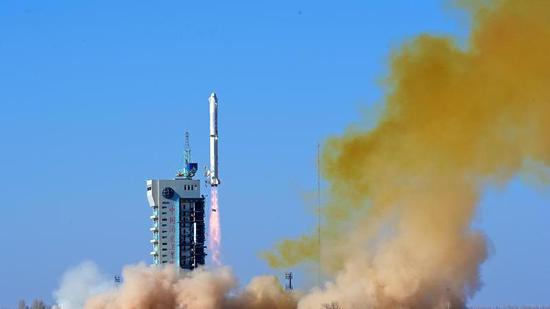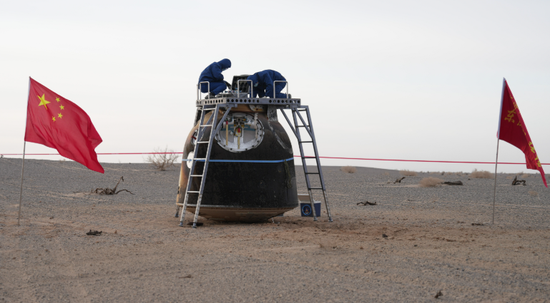
时间:2016-10-14 10:12:47人气:2633来源: 迪拜新闻网
China plans to launch an X-ray pulsar navigation satellite (XPNAV-1) in November to test autonomous spacecraft navigation, according to China Aerospace Science and Technology Corporation (CASC) Fifth Academy.
X-ray pulsar navigation is an innovative navigation technique in which periodic X-ray signals emitted from pulsars are used to determine the location of a spacecraft in deep space, said Shuai Ping, chief system designer of the satellite.
The satellite, developed by CASC Fifth Academy, weighs more than 200 kilograms and carries two detectors.
In its mission, the satellite will test the detectors' functions in responding to the background noise of the universe, outline pulsar contours, and create a database for pulsar navigation, the academy said.
X-ray pulsar navigation techniques will help reduce the reliance of spacecraft on ground-based navigation methods and are expected to achieve autonomous spacecraft navigation in the future.

China, Algeria expand space cooperation with new satellite launch
(5991)人喜欢2026-02-02
Chinese PLA aerobatic team to fly J-10 Jets at Singapore Airshow
(5356)人喜欢2026-01-27
Free entry for Chinese fans at AFC U23 Asian Cup final a rumor
(4410)人喜欢2026-01-23
Shenzhou-20 spacecraft returns safely to Earth
(4337)人喜欢2026-01-19
China becomes net exporter of industrial robots: official
(6009)人喜欢2026-01-15
Chinese navy hospital ship pays first visit to Brazil
(6013)人喜欢2026-01-10
Another Nanjing massacre survivor dies, only 22 remain
(5159)人喜欢2026-01-04
China's first L3 self-driving car debuts in Chongqing
(4427)人喜欢2025-12-28